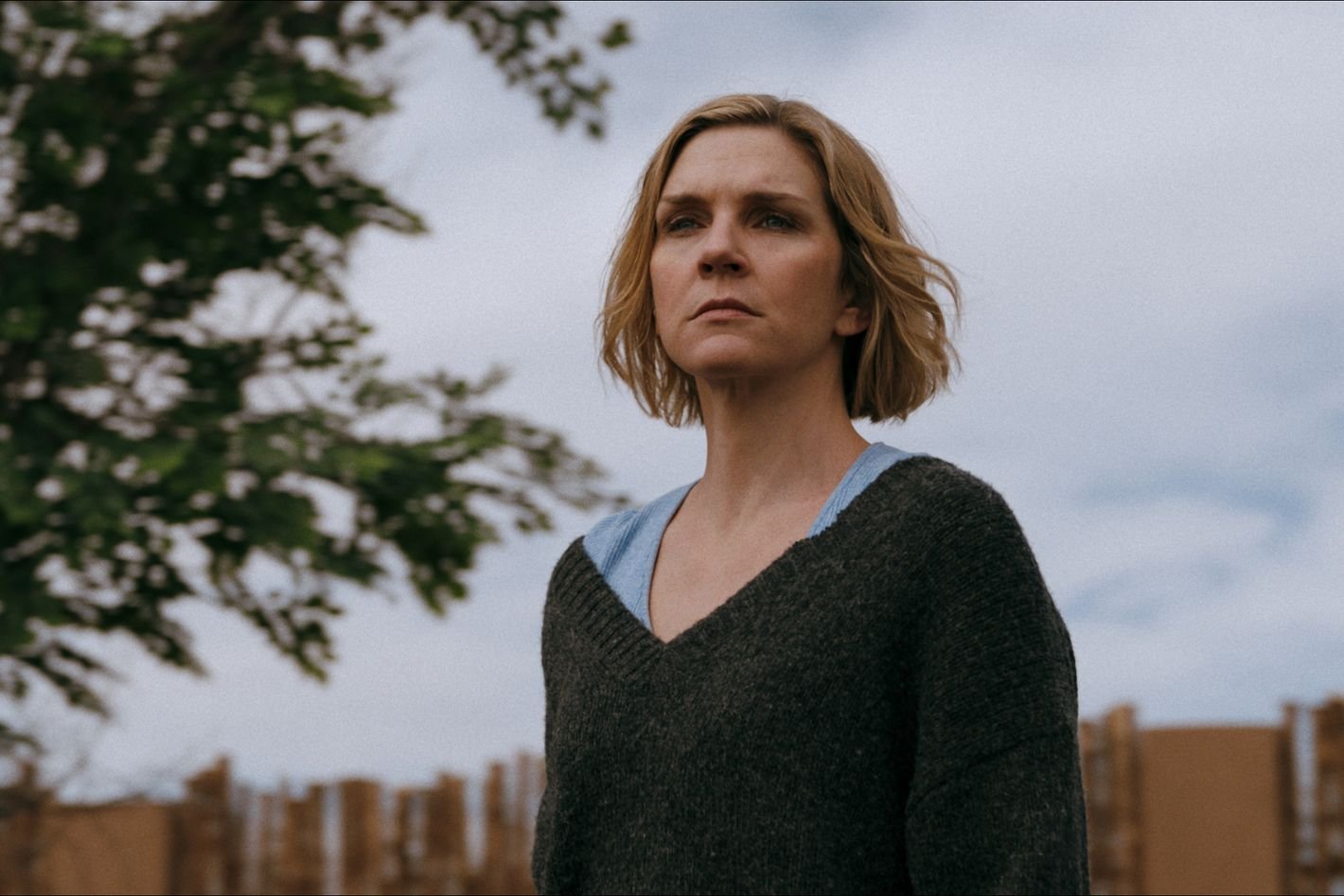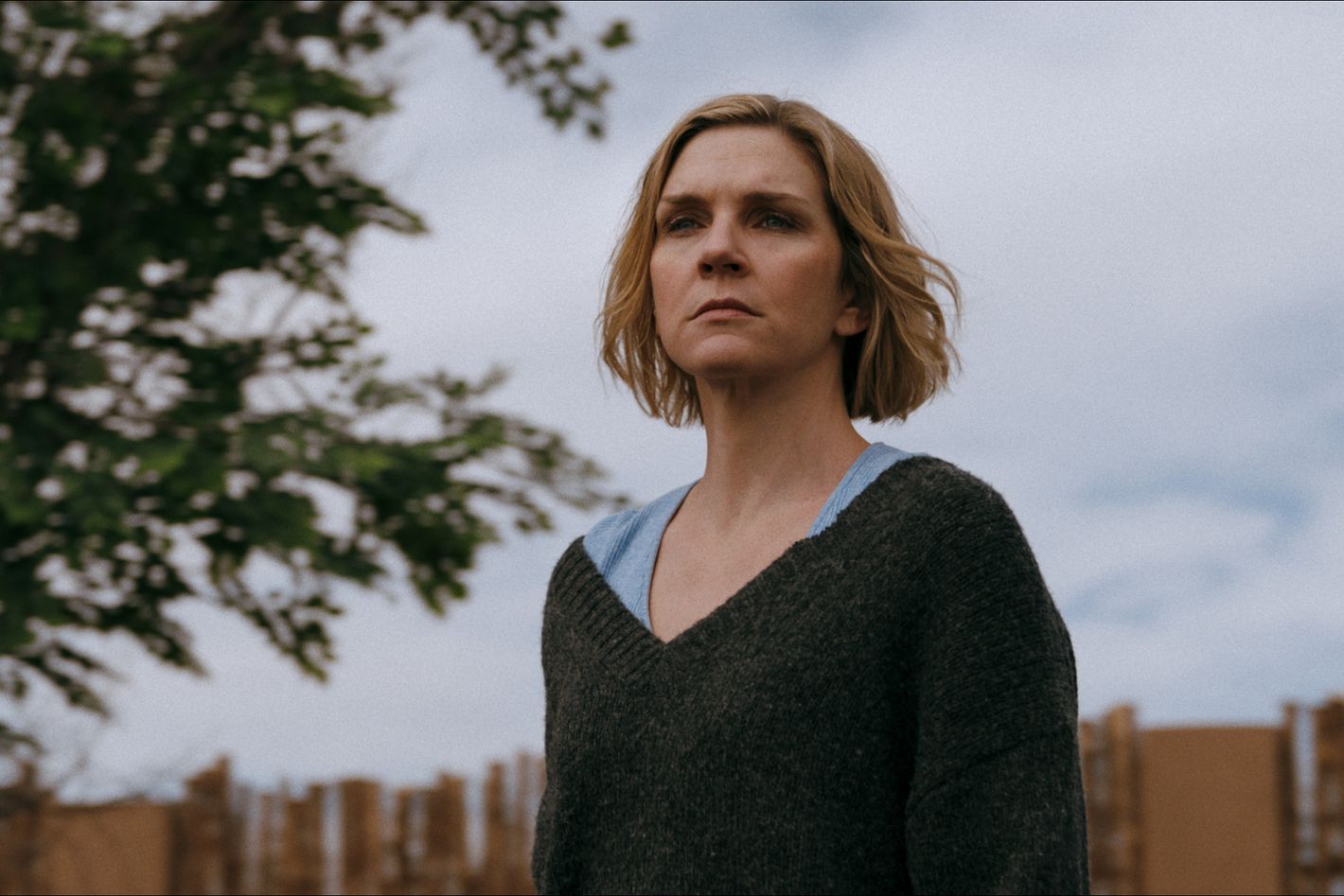
Carol Sturka was not a particularly happy individual even before the emergence of the perpetually peppy “We” in the first episode of Pluribus, and after We takes over, her condition deteriorates … rapidly. The Carol we’re left with as the credits roll on the premiere is a veritable layer cake of depression, shock, anger, grief, and loneliness. The cherry on the top of her mental breakdown? Well, it seems to have fallen on her to singlehandedly solve the biggest crisis that mankind has ever faced. Life truly isn’t fair sometimes.
Pluribus is a show that gives viewers lots to consider and contemplate, and at the center of all of it is Rhea Seehorn’s deft portrayal of Carol. Celebrated for her role as Kim Wexler on Better Call Saul, Seehorn is an actress with astounding range and emotional depth — even a minute widening of her eyes or a twitch of her lip can convey volumes — and it’s easy to see why Pluribus creator Vince Gilligan wrote this role specifically for her. Seehorn imbues Carol with festering rage, unresolved traumas, and a deep well of sadness that make her a compelling character study in a world in which her discontent clashes with all the happiness that surrounds her.
Since the kindly We poses no direct threat to Carol’s physical well-being, her emotional journey is the engine that controls the narrative. Her shifting moods, use of various coping skills — both healthy and unhealthy — and choice of communication styles are all indicative of a woman in great distress. Why wouldn’t she be? Even though she’s surrounded by people, she’s basically all alone. As a therapist, I’m concerned for her! So, in the interest of gauging Carol’s mental health, I’ll be checking in with her every week as her waking nightmare continues to unfold. Let’s break down Carol’s breakdown, episode by episode, shall we?
Spoilers follow for the most recent episodes of Pluribus.
Episode 3: “Grenade”
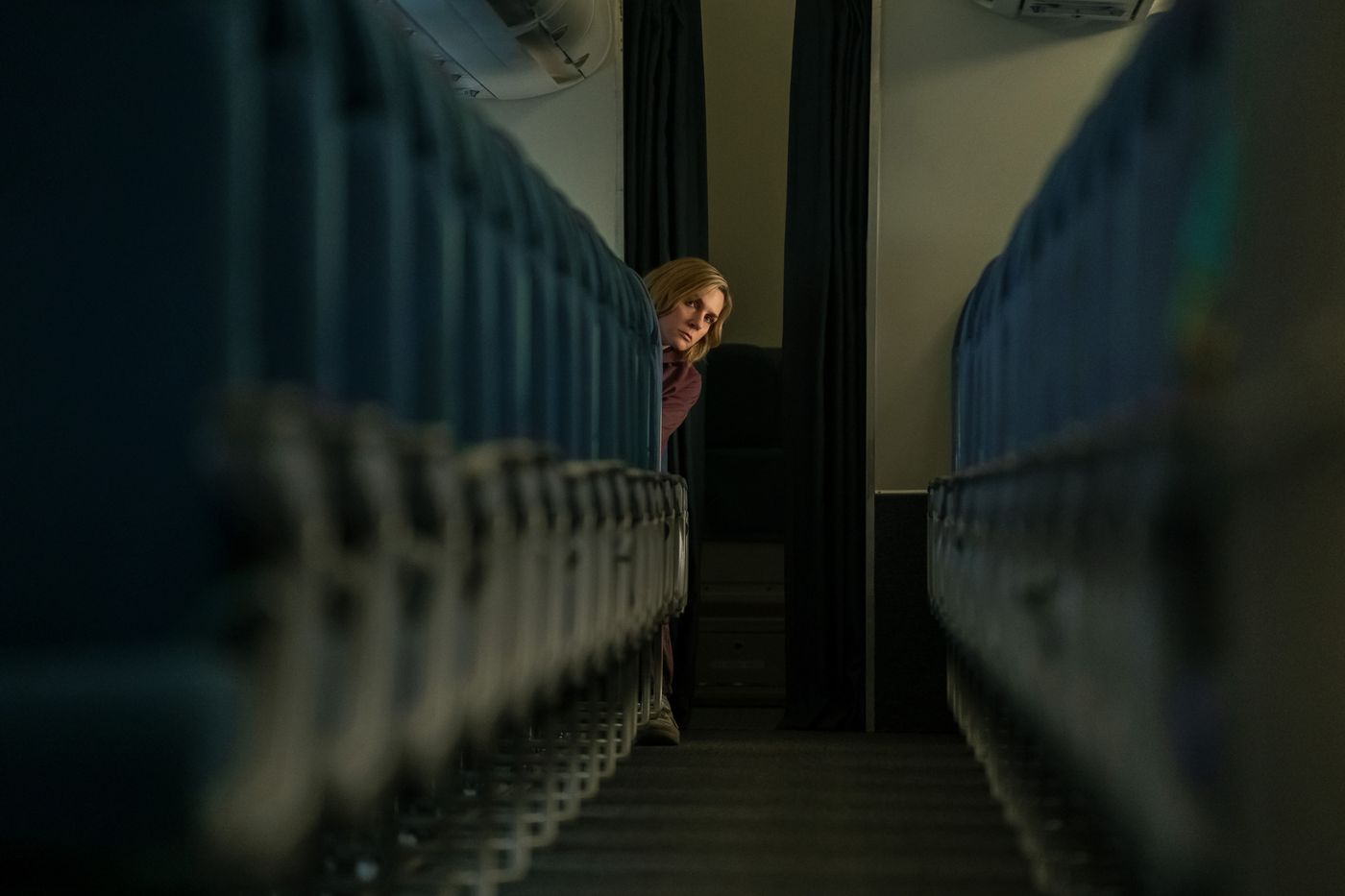
Carol returns home from her summit with the other English-speaking survivors and feels defeated. When Zosia gives her a gift from Helen that was in transit when the world ended, Carol almost flips into rage-monster mode again but manages to barely hold it together. She tells “We” to forget that Helen existed, and then rejects their offer of food, opting instead to go grocery shopping. Carol’s favorite Sprouts is empty, but in a worker-bee show of power, members of We scuttle out from the wings of the world and fill it back up again in an hour. Later, when Carol’s power accidentally gets shut off, she goes on a rant to Zosia, sarcastically stating that a hand grenade would make her happy. Zosia delivers one, and a completely wasted Carol pulls the pin, thinking that the grenade is fake. It is not fake. Zosia saves Carol’s life, and while Carol waits for her to recover at the hospital, she talks to another member of We, requesting increasingly dangerous items until the individual before her tells her that they’d even source an atom bomb for her (!) if she said it would make her happy.
How Are You Doing, Carol?
Carol’s mental state can be summed up in two words: frozen dinner. This woman has an entire grocery store of fresh food to pick from, and she chooses a gross-looking frozen entrée. What about a nice charcuterie plate, Carol? This episode makes it very clear that Carol has mostly given up, choosing to dissociate by hiding under a blanket on her couch, binging DVDs of the Golden Girls, and methodically working her way through a bottle of Xanax.
Interestingly — and thankfully — Carol does not seem to be actively suicidal. Instead, she’s numbing the world out as much as she can. However, We can see that Carol is tragically unhappy, and they want to do everything they can to cheer her up. Curiously enough, the gift of the hand grenade does change things. Once Carol finds out that We would go to the ends of the earth to give her even an atomic bomb, she shifts to a different mood. Right before the credits roll, we watch as her face sets in an expression of quiet contemplation.
➼ Sad Carol: The (literally) cold open of this episode flashes back seven years to a trip that Carol and Helen took to a boutique ice hotel. As they check into their absolutely stunning and magical room, Helen takes in all the splendor around them while Carol just gripes about everything. Her list of complaints includes that the bed is made of ice (it’s an ice hotel, Carol), that the trip was too expensive (yes, $100,000 is astronomical, but you’re a best-selling author, babe), and that the aurora borealis looks like a screen saver (okay, it kind of does). Helen deflects all of her complaints with a cheery wave, and Carol finally sits down next to her, taking a second to enjoy the moment with her favorite person on earth. This beat is not only an Apple TV budget flex, but it also establishes Carol as a person who believes that happiness is a weakness. For Carol, to be happy would be to show vulnerability, and she seems terrified of allowing almost anyone to see her pink underbelly.
Carol’s aversion to emotion also extends to sadness. In fact, Carol doesn’t really let herself feel any feelings. That Inside Out control panel in her brain is mostly just controlled by one emotion, and one emotion only …
➼ Mad Carol: Because Carol so frequently bottles up her emotions, they often explode out of her in the form of anger. Rhea Seehorn is truly wonderful at playing Carol’s emotional beats out in real time, with a flicker of her true emotion passing across her face before she quickly stifles it and shifts to blame and anger mode instead. (See: the heartbreaking moment when Zosia reminds Carol of the ice-hotel trip, and Carol forces herself to choke back tears before impulsively grabbing the grenade.) Anger is the only acceptable feeling for Carol since it allows her to shift the onus onto others so she doesn’t have to do the difficult work of parsing all those pesky emotions herself. Thankfully, Carol has been able to calm her rage impulses around We by stopping and taking a shaky breath (it feels like she’s probably been in anger management before), but it’s probably only a matter of time before her temper triggers another We meltdown.
Carol knows she has to control her temper when it’s directed at We, but she doesn’t have to censor herself around others. We get to see furious Carol in action when she attempts to call Manousos, the survivor from Paraguay, and he cusses her out. Carol demands that Zosia get him back on the phone, not to reason or negotiate with him, but to tell him to go fuck his mother. It’s a hilarious beat, but it also underscores Carol’s complete inability to keep her cool, even when the fate of the world might just depend on it.
➼ Cheers, Carol: Or should I say “shoopy shoop shoop”? Carol is as loose as a goose, my friends. I’m concerned about her liberal mixing of Xanax with alcohol — this can be a very dangerous combination of substances — but it feels like she might back off of this routine after her stoned ass activated a literal grenade in her house.
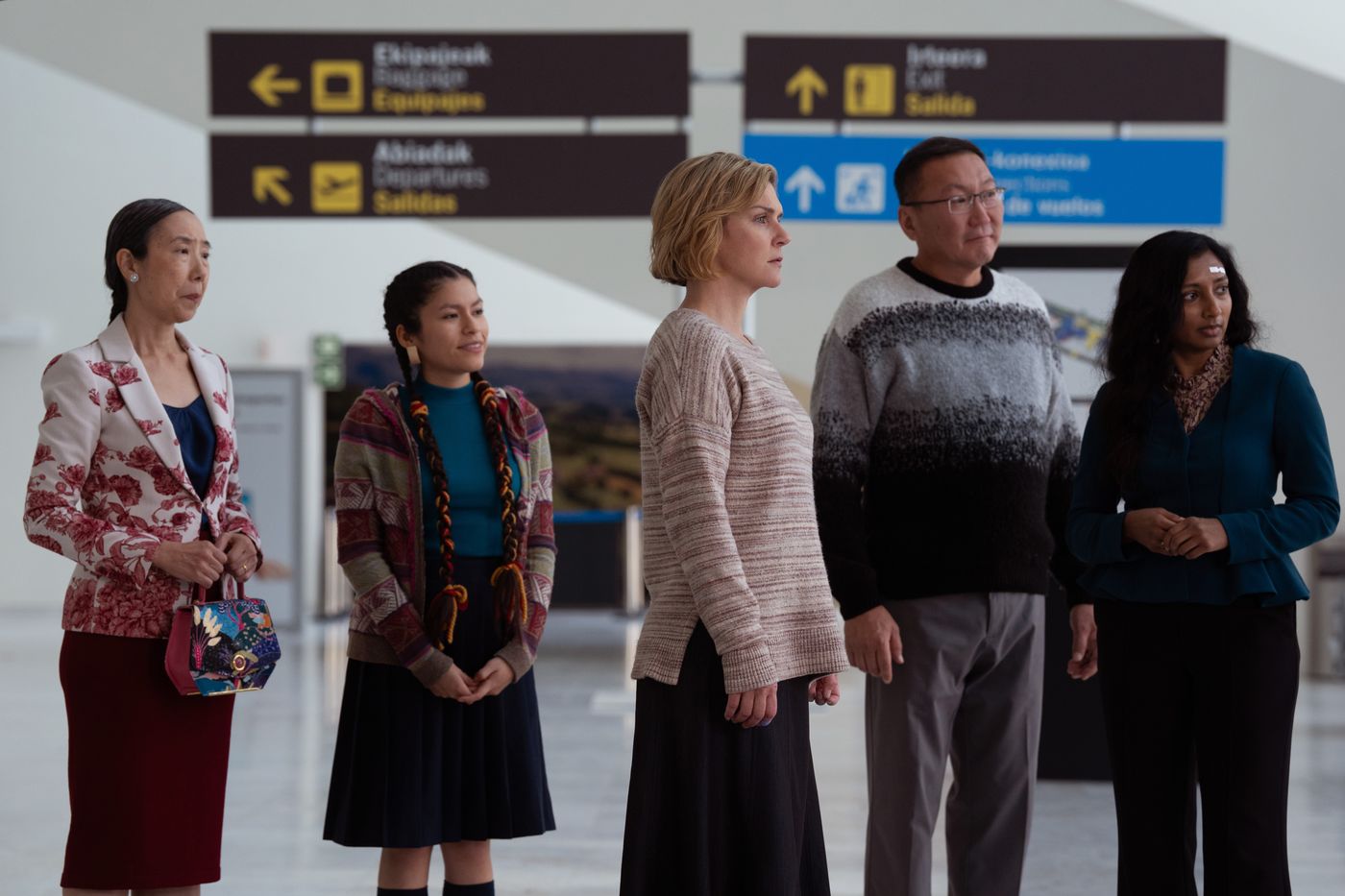
“We” works overtime to keep Carol happy, selecting a woman named Zosia (Karolina Wydra) they believe Carol will like and sending her halfway across the world for a visit. Carol is preoccupied with burying Helen in the backyard, so she is annoyed to see Zosia at first but becomes downright apoplectic when Zosia suggests that Helen “joined” them before she died. When Carol directs her shrieking rage directly into Zosia’s face, all of We feels it, the entirety of the human race falling to the ground with seizures. Later, we learn that 11 million people died as a result of Carol’s outburst.
After burying Helen, Carol arranges a meeting with the remaining unjoined survivors who speak English and is astonished to find that all five of them are content with how things have changed. Horrified that no one sees the problem with this twisted new world, she has another outburst and triggers We to shut down yet again. In the morning, she finds that all but one of the surviving humans has left, and that the one remaining — Koumba Diabaté (Samba Schutte) — is requesting to take Zosia with him as a part of his traveling harem. As a part of We, Zosia claims she cannot choose as it will hurt someone. Carol initially says she doesn’t care, but as the planes begin to take off she races in front of Diabaté’s departing aircraft to reclaim her pirate lady.
How Are You Doing, Carol? Carol is actively detaching from anyone who might be of help to her. It’s understandable that she might want to put some distance between herself and the pod people, but when she meets her fellow survivors she immediately puts up her defenses instead of getting curious about why the others have reacted the way they have. When another survivor named Kusimayu claims that she wants to join We so she can be with her family members, Carol scoffs; she clearly doesn’t have a ton of compassion or patience for others … or for herself. It’s been mere days since the end of the world, so we should definitely cut Carol a break, but it’s clear that she never learned that you can catch more flies with honey than vinegar.
➼ Sad Carol: Currently, Carol does not have room for sadness in her repertoire of emotions. A fellow therapist once told me that anger is hurt turned outward, and Carol’s unprocessed hurt is causing We some trouble. Compounding Carol’s inner hurt seems to be the fact that she wasn’t out to the world about being a lesbian. When Zosia first arrives, Carol realizes that she’s basically the female version of the character Raban from her popular Wycaro book series. The only one who knew that Raban was originally written as a woman was Helen. Coupled with the fact that Carol pushed back against telling her readers the truth about who Raban was based on in the premiere — Helen encourages her to tell the truth; Carol insists on responding with “George Clooney” — it feels like Carol has lingering issues with how she hid her sexuality and, now that the world is ending, perhaps some regrets.
➼ Mad Carol: Whew. There has never been a rage like Carol’s rage in the history of the world. If we look at the stages of grief, Carol is certainly in the anger stage. She is fully correct to blame We for Helen’s death, so the wrath she directs at them is not wholly unearned. However, it is also killing people. Is Carol’s rage a secret superpower? Or is it something she needs to reckon with before it’s too late?
➼Cheers, Carol: Carol initially declines an offer of Champagne, presumably to stay sharp in order to problem solve with the other survivors, but the minute it’s clear that things aren’t going to go her way she grabs the glass and keeps drinking. Waking up with a hangover in the apocalypse has got to be awful.
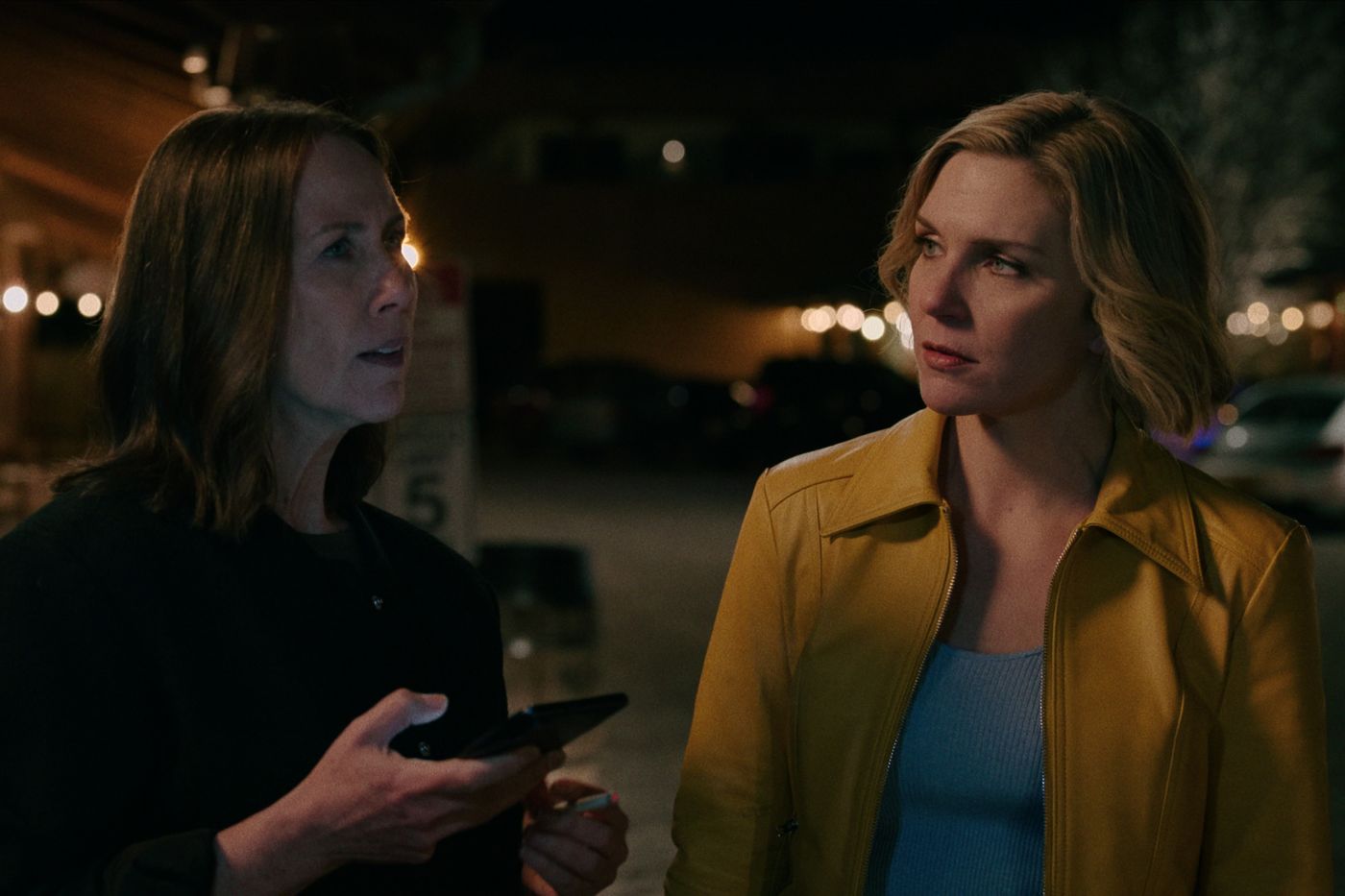
The premiere doesn’t immediately introduce us to Carol. First, it tracks the discovery of a mysterious signal from space. Eventually, an overeager astronomer (hi, Allan McLeod!) realizes that the signal is code for an RNA sequence. Before considering the potential consequences of their actions (cue Dr. Ian Malcolm’s immortal words), the scientists of the world create and unleash the virus-not-a-virus, and the entire world quickly succumbs. Carol is casually chatting with her manager and romantic partner, Helen (Miriam Shor), when the pathogen descends on everyone, creating a horrific scene of silent, seizing bodies. As the only unafflicted person, Carol freaks out but does not panic, loading Helen into a nearby truck and bringing her to the hospital where she finds more twitching bodies. Tragically, Helen dies in the truck at the hospital just as the horde wakes up and calls Carol by her name. She flees home where a man addresses her directly from her television and attempts to explain what has happened, telling her that all of humanity is now a hive mind called “We.” When he eventually tells Carol that he’d like her to join them, she finally allows panic to flood her body, curling up in a fetal position on her couch and screaming into her living room.
How Are You Doing, Carol?
This episode shows us how Carol was kind of miserable even before the We-pocalypse: She roundly dismisses her best-selling romance novels as “mindless crap” and drowns her sorrows in a giant Manhattan at the conclusion of her wildly successful book tour. She also has an ignition interlock system with a breathalyzer installed in her car, indicating that she’s struggled with alcohol use in the past. Helen appeared to provide some balance to Carol’s Eeyore-like existence, but now Helen is gone … and so is the rest of the world.
➼ Sad Carol: This episode doesn’t give Carol one solitary second to process her grief over losing both Helen and the entire structure of life on earth. Carol is experiencing a whole host of traumas all at the same time and while it’s clear she’s not in denial about what is happening, she’s certainly in shock.
➼ Mad Carol: Carol seems to have some pent-up rage inside of her. See: the promotional material for Pluribus that’s just a close-up of Rhea Seehorn’s screaming face. However, we haven’t seen much of this side of her yet because, understandably, she’s in total shock.
➼ Cheers, Carol: Another indicator that Carol likes to get her drink on is the sequence in which she, desperate to find any information, flips through the channels on her TV, finally landing on C-Span. Seeing the highly specific chyron that asks her to call in directly, she heads to the phone but first makes a sharp detour to her liquor cabinet, taking a quick shot of brown liquor and then dumping a healthy pour into the glass before making her call. We don’t see her face at all during these moments, only decisive action. Whom among us hasn’t grabbed some booze in times of stress? (We all did during COVID, am I right?) But given how Gilligan treats this beat, it’s clear that this is a woman who likes to numb her feelings instead of delving into her pain headfirst.
Check back next week for the latest on Carol’s well-being.
Related
